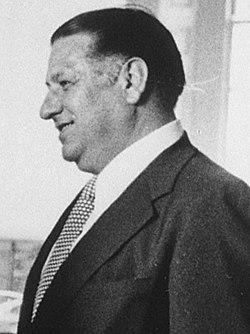Frank Rizzo: From School Dropout to PhiladelphiaŌĆÖs Iconic Law Enforcement Leader
Early Years and Unconventional Path to Police Leadership
Frank RizzoŌĆÖs upbringing in PhiladelphiaŌĆÖs predominantly Italian-American working-class neighborhoods was marked by hardship and determination. Despite leaving high school prematurely, RizzoŌĆÖs grit and streetwise savvy propelled him into a career with the Philadelphia Police Department in the late 1940s. His rise was unconventional, bypassing formal education but leveraging his deep understanding of urban challenges and community dynamics. This foundation became central to his identity and helped him connect with many blue-collar residents.
Several key elements contributed to RizzoŌĆÖs rapid advancement within the police force:
- Unwavering dedication: Beginning as a patrolman, his relentless effort earned him steady promotions.
- Strong neighborhood bonds: His roots in working-class districts fostered political and social support.
- Commanding leadership: His assertive and often polarizing methods resonated during times of urban tension.
| Year | Career Highlight | Age |
|---|---|---|
| 1949 | Joined Philadelphia Police Department | 22 |
| 1967 | Named Police Commissioner | 40 |
| 1972 | Elected Mayor of Philadelphia | 45 |
Revolutionizing Policing: Firm Measures Amid Controversy
During his leadership, Rizzo transformed PhiladelphiaŌĆÖs policing philosophy by adopting a stringent, no-compromise stance on crime control. His belief that aggressive enforcement was essential to restoring order in troubled neighborhoods led to increased police presence and crackdowns on criminal activity. However, this approach also sparked widespread criticism, with accusations of police brutality and racial discrimination igniting protests and national scrutiny.
Key aspects of RizzoŌĆÖs policing policies included:
- Strict enforcement: Prioritized law and order often at the expense of community trust.
- Contentious civil rights record: His policies provoked civil unrest and drew attention from civil rights advocates.
- Political impact: His style paved the way for future urban leaders embracing populist, hardline platforms.
| Year | Policy Action | Immediate Outcome |
|---|---|---|
| 1972 | Boosted patrols in crime hotspots | Rise in arrests, increased community alienation |
| 1974 | Expanded tactical SWAT units | Improved rapid response but heightened militarization |
| 1976 | Suppressed political protests | Escalated tensions and civil disturbances |
RizzoŌĆÖs Political Persona and Its Resonance with Modern Populism
Frank RizzoŌĆÖs evolution from a dropout to a dominant law enforcement figure exemplifies a rugged, unapologetic brand of politics that later found echoes in the MAGA movement. His unapologetic stance on crime, skepticism toward liberal reforms, and confrontational rhetoric against dissenters created a political blueprint emphasizing populism and law-and-order themes. This approach appealed strongly to working-class voters who felt alienated by the cultural shifts of the 1960s and 70s.
Several parallels between RizzoŌĆÖs style and MAGA ideology include:
- Populist messaging: Directly addressing the grievances of everyday citizens against perceived elite neglect.
- Emphasis on law and order: Advocating strict policing as a cornerstone of societal stability.
- Polarizing narratives: Framing politics as a battle between ŌĆśtrue patriotsŌĆÖ and adversaries.
| Dimension | RizzoŌĆÖs Approach | MAGA Movement Parallel |
|---|---|---|
| Background | Working-class origins, school dropout | Championing the ŌĆścommon manŌĆÖ identity |
| Policing | Militant, uncompromising enforcement | ŌĆśLaw and orderŌĆÖ as a central theme |
| Political Style | Populist, confrontational rhetoric | Direct, polarizing communication |
| Public Image | Divisive, controversial figure | Strong base support alongside vocal opposition |
Contemporary Reflections: What RizzoŌĆÖs Legacy Teaches TodayŌĆÖs Leaders
Frank RizzoŌĆÖs career as PhiladelphiaŌĆÖs police chief and mayor highlights the enduring power of combining tough-on-crime rhetoric with populist appealŌĆöa strategy still influential in current political and law enforcement arenas. His aggressive policing style resonated with voters anxious about urban crime and social disorder, a dynamic that continues to shape debates on public safety and governance. However, his legacy also underscores the delicate balance between enforcing order and fostering community trust.
Key takeaways from RizzoŌĆÖs era relevant to modern challenges include:
- Limits of force: While strict policing can restore short-term order, sustainable peace requires community engagement and reform.
- PopulismŌĆÖs double-edged sword: Mobilizing support through identity politics can energize bases but also deepen societal divisions.
- Institutional inertia: Policies and cultures established decades ago continue to influence policing philosophies today.
| Focus Area | RizzoŌĆÖs Method | Modern Implications |
|---|---|---|
| Policing | Militarized, zero-tolerance approach | Calls for accountability and reform intensify |
| Political Messaging | Appealed to the ŌĆśsilent majorityŌĆÖ | Foundation for contemporary populist movements |
| Community Relations | Often adversarial and confrontational | Growing emphasis on dialogue and partnership |
Conclusion: The Enduring Impact of Frank Rizzo on American Politics and Policing
Frank RizzoŌĆÖs multifaceted legacy as PhiladelphiaŌĆÖs toughest law enforcement leader and political figure remains a subject of intense discussion. From his humble beginnings as a high school dropout to his ascent as police commissioner and mayor, RizzoŌĆÖs tenure left a lasting imprint on the cityŌĆÖs governance and policing culture. His approach anticipated many themes that later emerged in national populist movements, illustrating how local leadership can influence broader political narratives. Understanding RizzoŌĆÖs story is crucial for comprehending the complex intersections of crime control, political identity, and populism in the United States today.








